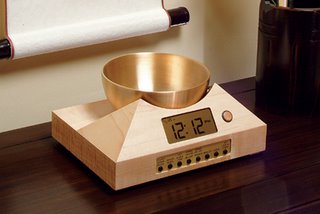
Meditation
Using a magnetic resonance imaging (MRI) machine, Eileen Luders, a re-searcher in the Department of Neurology at the University of California Los Angeles School of Medicine, looks for evidence that meditation changes the physical structure of the brain. Until recently, this idea would have seemed absurd. “Scientists used to believe that the brain reaches its peak in adulthood and doesn’t change—until it starts to decrease in late adulthood,” Luders says. “Today we know that everything we do, and every experience we have, actually changes the brain.” Indeed, Luders finds several differences between the brains of meditators and nonmeditators. In a study published in the journal NeuroImage in 2009, Luders and her colleagues compared the brains of 22 meditators and 22 age-matched nonmeditators and found that the meditators (who practiced a wide range of traditions and had between 5 and 46 years of meditation experience) had more gray matter in re-gions of the brain that are important for attention, emotion regulation, and mental flexibility. Increased gray matter typically makes an area of the brain more efficient or powerful at processing information. Luders believes that the increased gray matter in the meditators’ brains should make them better at controlling their attention, managing their emotions, and making mindful choices.
Why are there differences between the brains of meditators and nonmeditators? It’s a simple matter of training. Neuroscientists now know that the brain you have today is, in part, a reflection of the demands you have placed on it. People learning to juggle, for example, develop more connections in areas of the brain that anticipate moving objects. Medical students undergoing periods of intense learning show similar changes in the hippocampus, an area of the brain important for memory. And mathematicians have more gray matter in regions important for arithmetic and spatial reasoning.

Meditation Timers and Alarm Clocks - Boulder, CO
More and more neuroscientists, like Luders, have started to think that learning to meditate is no different from learning mental skills such as music or math. Like anything else that requires practice, meditation is a training program for the brain. “Regular use may strengthen the connections between neurons and can also make new connections,” Luders explains. “These tiny changes, in thousands of connections, can lead to visible changes in the structure of the brain.” Those structural changes, in turn, create a brain that is better at doing whatever you’ve asked it to do. Musicians’ brains could get better at analyzing and creating music. Mathematicians’ brains may get better at solving problems. What do meditators’ brains get better at doing? This is where it gets interesting: It depends on what kind of meditation they do.
Over the past decade, researchers have found that if you practice focusing attention on your breath or a mantra, the brain will restructure itself to make concentration easier. If you practice calm acceptance during meditation, you will develop a brain that is more resilient to stress. And if you meditate while cultivating feelings of love and compassion, your brain will develop in such a way that you spontaneously feel more connected to others.
Improve Your Attention
New research shows that meditation can help you improve your ability to concentrate in two ways. First, it can make you better at focusing on something specific while ignoring distractions. Second, it can make you more capable of noticing what is happening around you, giving you a fuller perspective on the present moment.
Some of the most fascinating research on how meditation affects attention is being conducted by Antoine Lutz, PhD, an associate scientist at the Waisman Laboratory for Brain Imaging and Behavior at the University of Wisconsin at Madison, in collaboration with Richard Davidson and the Laboratory for Affective Neuroscience at the University of Wisconsin. Their work has shown that concentration meditation, in which the meditator focuses complete attention on one thing, such as counting the breath or gazing at an object, activates regions of the brain that are critical for controlling attention. This is true even among novice meditators who receive only brief training. Experienced meditators show even stronger activation in these regions. This you would expect, if meditation trains the brain to pay attention. But extremely experienced meditators (who have more than 44,000 hours of meditation practice) show less activation in these regions, even though their performance on attention tasks is better. The explanation for this, in Lutz’s view, is that the meditation training can eventually help reduce the effort it takes to focus your attention. “This would be consistent with traditional accounts of progress in meditation practice. Sustaining focus becomes effortless,” Lutz says. This suggests that people can immediately enhance concentration by learning a simple meditation technique, and that practice creates even more progress.
The researchers also looked at whether vipassana meditation training can improve overall attention. (Vipassana means “to see things as they really are,” and the meditation techniques are designed to increase focus, awareness, and insight.) Researchers label our inability to notice things in our environment as “attentional blink.” Most of us experience this throughout the day, when we become so caught up in our own thoughts that we miss what a friend says to us and have to ask her to repeat it. A more dramatic example would be a car accident caused by your thinking about a conversation you just had and not noticing that the car in front of you has stopped. If you were able to reduce your attentional blink, it would mean a more accurate and complete perception of reality—you would notice more and miss less.

Time Your Meditation With A Zen Timepiece with Tibetan Singing Bowl
To test whether meditation reduces attentional blink, participants had to notice two things occurring in rapid succession, less than a second apart. The findings, published in PLoS Biology, reveal that the meditation training improved the participants’ ability to notice both changes, with no loss in accuracy.
What explained this improvement? EEG recordings—which track patterns of electrical activity in the brain, showing precise moment-by-moment fluctuations in brain activation—showed that the participants allocated fewer brain resources to the task of noticing each target. In fact, the meditators spent less mental energy no-ticing the first target, which freed up mental bandwidth for noticing what came next. Paying attention literally became easier for the brain.
As a result, Lutz and his colleagues be-lieve that meditation may increase our control over our limited brain resources. To anyone who knows what it’s like to feel scattered or overwhelmed, this is an ap-pealing benefit indeed. Even though your attention is a limited resource, you can learn to do more with the mental energy you already have.
Our Zen Timepiece’s acoustic 6-inch brass bowl-gong clock is the world’s ultimate alarm clock, practice timer, and “mindfulness bell.” It fills your environment with beautifully complex tones whenever it strikes. In the morning, its exquisite sounds summon your consciousness into awakening with a series of subtle gongs that provide an elegant beginning to your day. Once you experience the Zen Timepiece’s progressive awakening, you’ll never want to wake up any other way. It also serves as the perfect meditation timer.
adapted from Yoga Journal, by Kelly McGonigal

- Meditation Timers and Gentle Alarm Clocks
Now & Zen’s Meditation Timer Shop
1638 Pearl Street
Boulder, CO 80302
(800) 779-6383
Posted in intention, Meditation Timers, Meditation Tools, mindfulness practice, Now & Zen Alarm Clocks, zen, Zen Timers